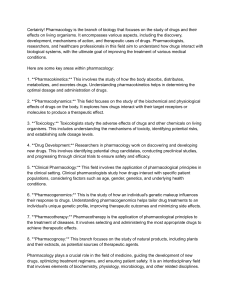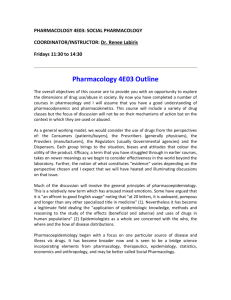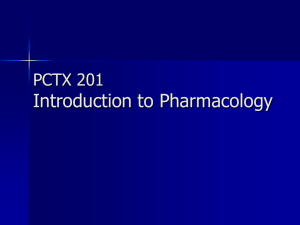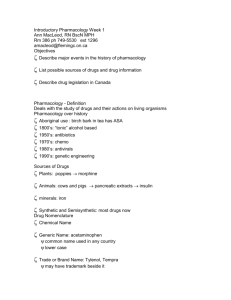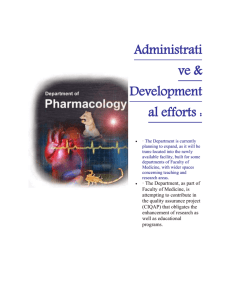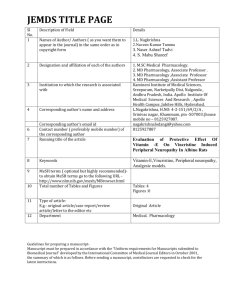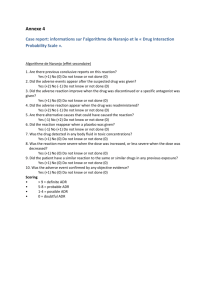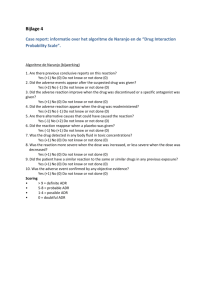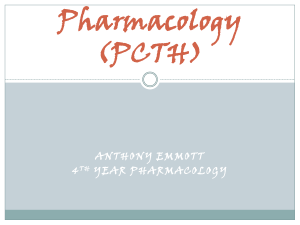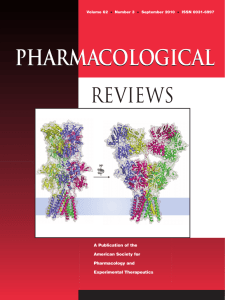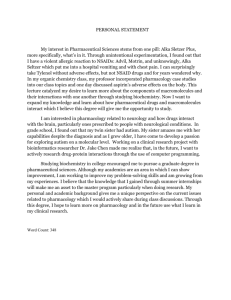programme of teaching clinical pharmacology and therapeutics to
advertisement
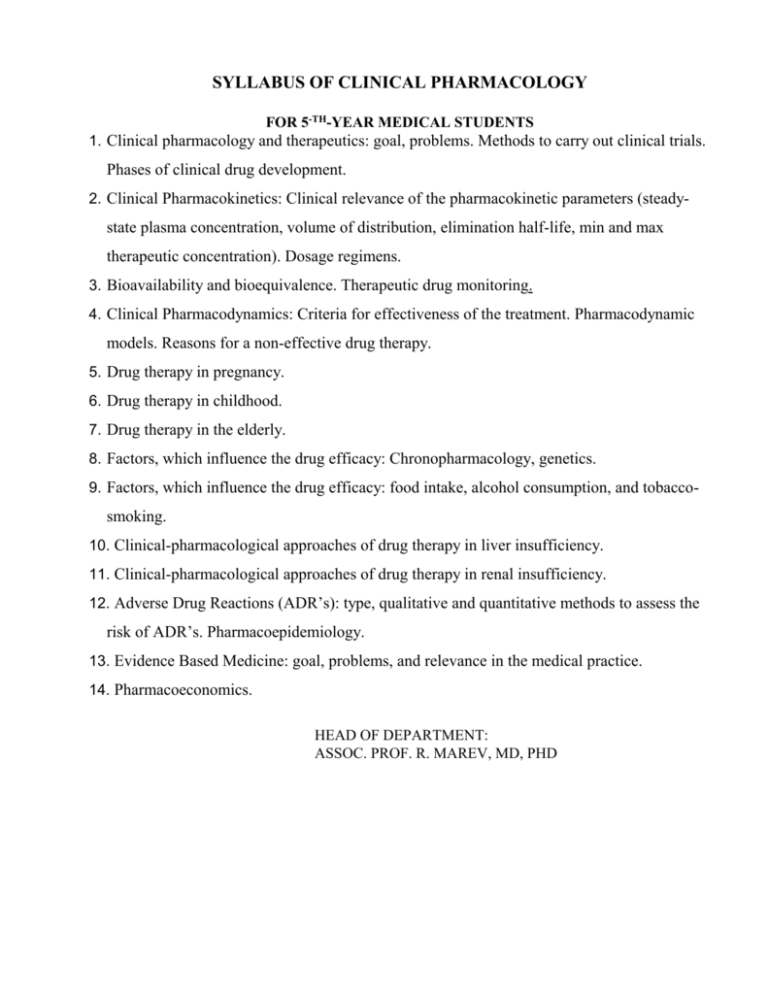
SYLLABUS OF CLINICAL PHARMACOLOGY FOR 5-TH-YEAR MEDICAL STUDENTS 1. Clinical pharmacology and therapeutics: goal, problems. Methods to carry out clinical trials. Phases of clinical drug development. 2. Clinical Pharmacokinetics: Clinical relevance of the pharmacokinetic parameters (steady- state plasma concentration, volume of distribution, elimination half-life, min and max therapeutic concentration). Dosage regimens. 3. Bioavailability and bioequivalence. Therapeutic drug monitoring. 4. Clinical Pharmacodynamics: Criteria for effectiveness of the treatment. Pharmacodynamic models. Reasons for a non-effective drug therapy. 5. Drug therapy in pregnancy. 6. Drug therapy in childhood. 7. Drug therapy in the elderly. 8. Factors, which influence the drug efficacy: Chronopharmacology, genetics. 9. Factors, which influence the drug efficacy: food intake, alcohol consumption, and tobacco- smoking. 10. Clinical-pharmacological approaches of drug therapy in liver insufficiency. 11. Clinical-pharmacological approaches of drug therapy in renal insufficiency. 12. Adverse Drug Reactions (ADR’s): type, qualitative and quantitative methods to assess the risk of ADR’s. Pharmacoepidemiology. 13. Evidence Based Medicine: goal, problems, and relevance in the medical practice. 14. Pharmacoeconomics. HEAD OF DEPARTMENT: ASSOC. PROF. R. MAREV, MD, PHD

